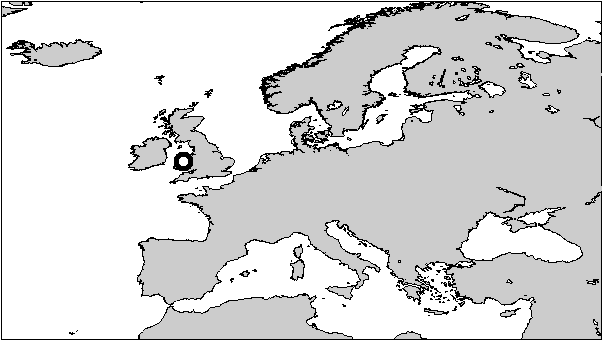
| www.CuriousTaxonomy.net |
|
The Flood in World Myth and Folklore
Europe |
| © 2021 Mark Isaak |

Edward Williams, also known as Iolo Morganwg, was considered one of the leading authorities on Welsh literature---until after his death when it was discovered that many of his manuscripts were forgeries. The account here most likely comes from his forgeries.
The lake of Llion burst, flooding all lands. Dwyfan and Dwyfach escaped in a mastless ship with pairs of every sort of living creature. They landed in Prydain (Britain) and repopulated the world.
John Rhys, Celtic Folklore, Welsh and Manx (Oxford: Clarendon, 1901), 2: 440. See also Frazer, 1919, 175.

Several other Welsh tales tell of inundations of towns and coastal regions. The tradition of Cantre 'r Gwaelod may be inspired by submerged natural features whose blocklike appearance suggests artificial buildings.
An embankment and sluices protected Cantre 'r Gwaelod from the sea. In the time when Gwyddno Garanhir was its lord, the keeper of the embankment, named Seithennin, got drunk at a banquet and left the sluices open. The sea broke through, and only a few people escaped. In quiet weather, the church bells can still be heard as the water moves them to and fro.
T. Gwynn Jones, Welsh Folklore and Folk-Custom (1930, reprint: Cambridge: D.S. Brewer, 1979), 97; Rachel Bromwich, "Cantre'r Gwaelod and Ker-Is," in The Early Cultures of North-West Europe, eds. Sir Cyril Fox and Bruce Dickins (Cambridge University Press, 1950), 215-241.

The lake of Brecknock-Mere was once a city which, by the judgment of Heaven for the sins of its inhabitants, sank into the earth, and the water rose up in its place.
Daniel Defoe, A Tour through England and Wales (London: Dent and Sons, 1928), 2: 53 [mostly quoted].

Many years ago, Helig ab Glannach ruled over a fertile tract of land called Tyno Helig, or Helig's Hollow. Helig had a daughter, Gwendud, who was exceedingly beautiful but full of cruelty and deceit. Gwendud was wooed by Tathal, the son of one of the barons of Snowdon. She was fond of him but would not wed him because he had no golden collar, a sign of rank.
After long failing to win Gwendud's hand fairly, Tathal determined to obtain a golden collar by foul means. He learned of a young chieftain, recently ransomed from being a prisoner of war, who had won a golden collar in wars against the Picts. Tathal offered him his services as a guide. Conducting him through Perfeddwlad, he treacherously stabbed him and took his collar, covering the murder with the story that they had been set upon by robbers, headed by an outlaw noble, whom he had slain in fair fight. Gwendud now agreed to wed Tathal, and Helig made a great feast for the families of the couple.
A harper who had been summoned to entertain at the revel had the gift of second sight. He asked a cupbearer to notify him if he saw anything unusual in the cellar when he went to draw the mead. It was not long before the cupbearer came running to the harper saying that water was flowing into the cellar, with fishes swimming in it.
The harper recognized this as a sign of the coming vengeance, and he and the servant fled for their lives. They were hardly out of the banquet hall when they heard the roar of a great flood behind them, followed by shrieks of terror. They ran as hard as they could, barely ahead of the pursuing waves, until they reached Rhiwgyfylchi and safety. When the sun rose in the morning, they saw an expanse of water where Tyno Helig once was. Some say the ruins of Helig's palace can be seen in the depths when the water is calm.
Thomas W. Jenkyn, The Welsh Fairy Book (New York: F. A. Stokes, 1908), 101.
